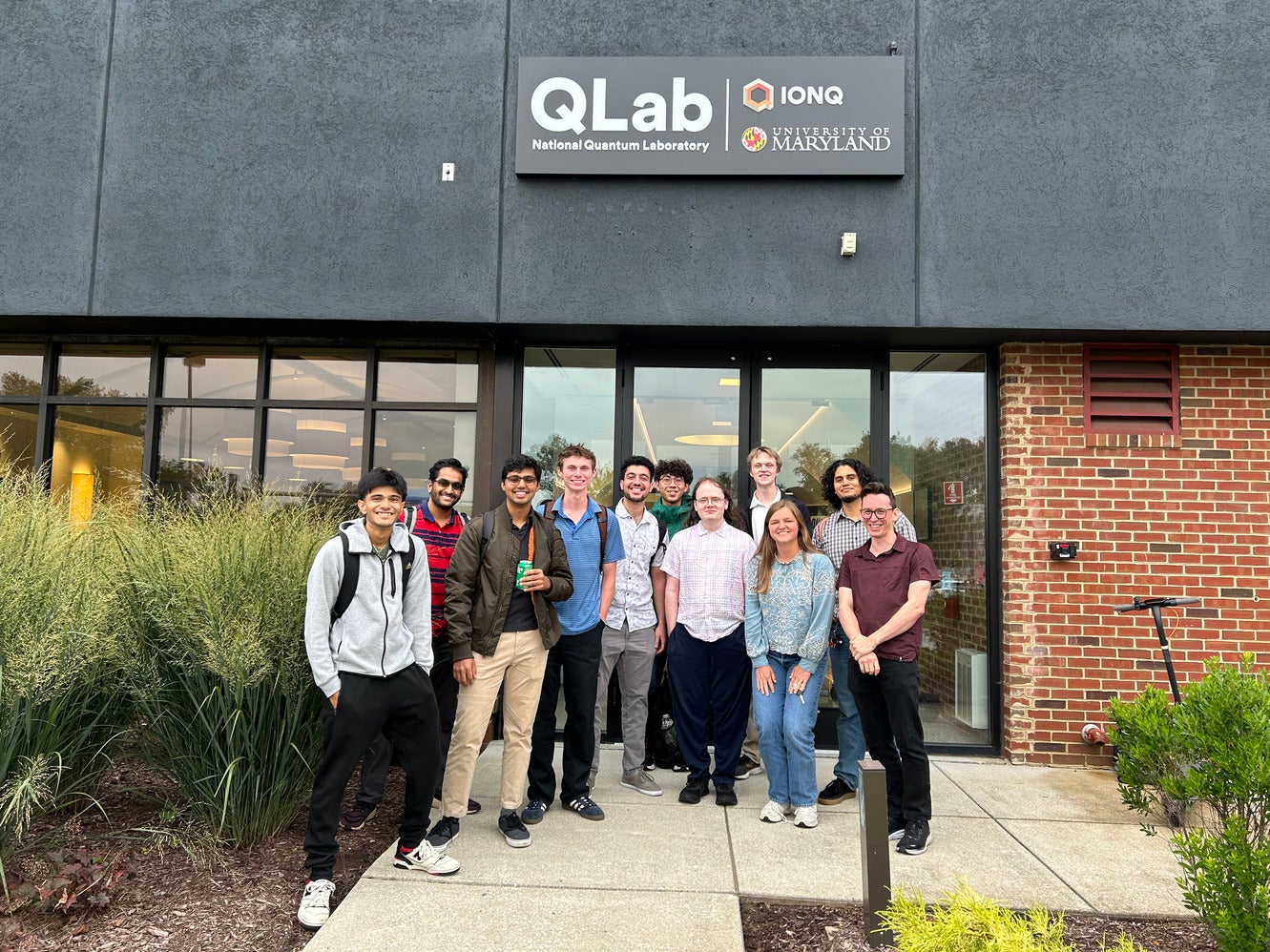
The QLab summer internship program 2025 draws to a close. It provided hands-on experience in the rapidly evolving field of quantum computing to a diverse group of students. The seven-week program, led by Dr. Franz Klein, hosted a total of 12 students. This cohort included five UMD undergraduate and five UMD master's students, as well as two seniors from the University of the District of Columbia (UDC).
The interns tackled a wide range of cutting-edge projects, exploring both theoretical concepts and practical applications. The students designed quantum circuits for various applications, using programming platforms like Qiskit, Cirq, and cudaQ. They even tested some of their circuits on the IonQ Forte-1, a powerful trapped-ion quantum computer, and D-wave Advantage, a superconducting quantum annealer.
Here are a few highlights from the projects:
Quantum Cellular Automata and Data Analysis
A team of students explored Quantum Cellular Automata (QCA), which uses quantum principles to model complex systems. They developed 1D and 2D rules for these automata and used them to analyze neuron spiking data. The group experimented with various quantum machine learning techniques, including Variational Quantum Eigensolvers (VQE) and Quantum Machine Learning (QML), to uncover patterns in the data.
Quantum Image Processing
Another group delved into the world of quantum-enhanced image processing. They utilized frameworks like Pennylane and Qiskit to build quantum circuits for tasks like image edge detection, using a technique called Quantum Hadamard Edge Detection (QHED). They also worked with different versions of Quantum Convolutional Neural Networks (QCNN) and Quantum Generative Adversarial Networks (QGAN) to generate new images and process existing ones.
Optimization and Routing
Students interested in optimization problems focused on the famous Traveling Salesperson Problem (TSP), which seeks the most efficient route between multiple cities. They used a variety of quantum algorithms to solve this classic challenge, including VQE and the Quantum Approximate Optimization Algorithm (QAOA). They also explored the use of quantum annealing by running tests on the D-Wave Advantage system.
Quantum Games
In a more playful but equally insightful project, a team investigated quantum games. They created quantum versions of games like blackjack, leveraging quantum mechanics to explore new strategies. The students also worked on a more fundamental game, the CHSH (Clauser-Horne-Shimony-Holt) game, and explored potential implementations using polarized photons, which provided a practical look at the power of quantum entanglement.
The QLab internship program provided a unique opportunity for these students to go beyond the classroom and apply their knowledge to complex, real-world problems in quantum computing. The projects demonstrated the diverse potential of quantum technology, from scientific research to practical applications.